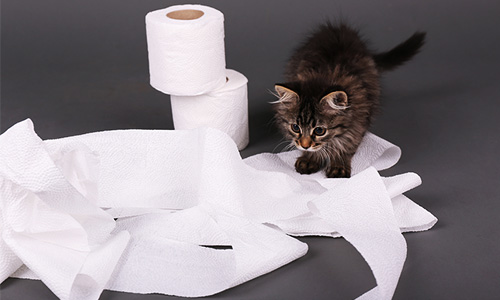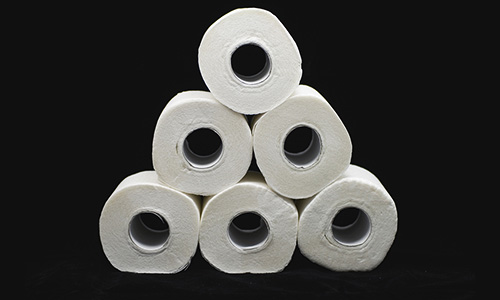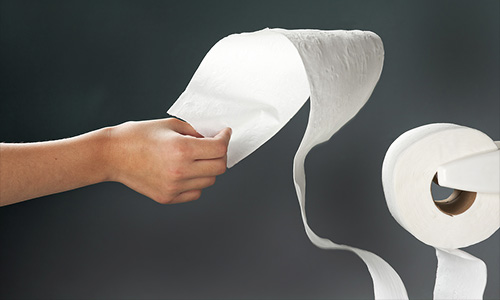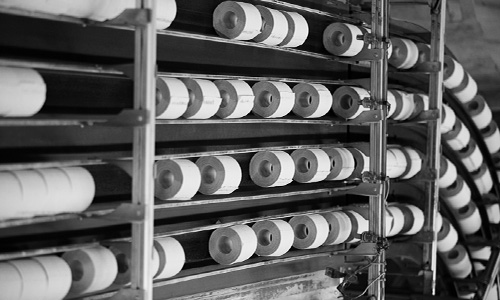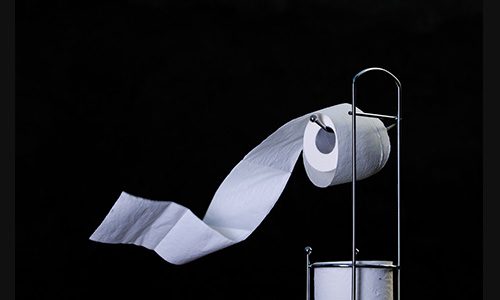The business of producing toilet paper has been recognised as one of the fastest developing assembling commercial initiatives in Africa.
Toilet paper is used in our homes, work places, schools, hotels, restaurants, shops, maternity homes, hospitals, churches, clubs and many others. It can be used in various other ways such as cleaning up messes and decoration.
The difference between toilet paper and other tissues is that it is created to breakdown in septic tanks and other tissues don’t necessarily do this.
To start and run a business, it is not enough just to have a good, viable idea. You also need to have the right skills, attitude and personality to make the enterprise succeed.
Benefits of starting a toilet paper production business
- It has a simple production procedures
- There are not many product offerings or varieties
- Simple organisational involved
- High interest on the product
- Easy to market
- Product is a primary necessity in society.
Possible challenges of starting a toilet paper production business
- The biggest constraint will be the insufficient amount of planted trees. This will affect you as this is where you will harvest your raw materials from. This can result in a reduction of plantation productivity. According to the Paper Manufacturers Association of South Africa 60% of all plantation trees are planted and grown especially for pulp and paper production.
- You will need to apply for water permits to meet the terms of the regulatory framework managing water usage. This is a long and difficult process and can limit you from achieving profitable operations.
- Transport, labour and licence costs will have a negative impact on your ability to competitively trade. You will need to apply cost control measures to remain competitive.
Did you know?
- In an average public bathroom, it takes 71 separate visits to finish a single roll of toilet paper.
Financing your venture
It’s most likely that you will need finance when setting up a toilet roll production business. The toilet roll production equipment is available in South Africa and ranges for a single machine from R175 000 for the bottom end of the range model to R500 000 for a fully automated machine.
Manufacturing plants are also very large in size which means financing it will be quite expensive. You should use your capital to purchase the equipment you’ll need.
Try and save money by buying economical but high quality equipment. Once you have all your equipment find a premise that will accommodate all of it. Once that is completed then contact stores and potential clients.
You can save money by renting or buying an inexpensive lot for your toilet paper business. You could even start in a smaller building and when you have increased your funds, upgrade your facilities into a bigger space. Make sure to take all of the costs into account when trying to finance your toilet paper business.
You’ll have to include raw material required to make the rolls. These are supplied in jumbo tissue rolls and cost from R6 600 per ton. You will also have to take into account staff.
Zhauns, a supplier of business opportunity machinery supports BEE by offering a variety of empowering programs for street vendors, unemployed and disadvantaged groups through consortiums, local and international joint ventures and has financial links which assist entrepreneurs in need of funding.
A start-up would need two-five people operate a small business of this kind. It takes about three months to set up the business and to properly train staff to operate machinery”. Zhauns offer free training when they install equipment purchased through them.
Planning
Planning is always your starting point when starting a new business. There are several techniques you can use for your planning process. You can use ready and existing techniques and plans or you can use innovative techniques which will make your toilet paper business more unique.
Focus on the specifics of what you will need for your toilet paper business such as equipment, employees, property and raw materials. Making errors during the planning phase is normal. After your plan is finalised it should be flexible enough that you can add changes.
In this industry you are not just competing with local manufacturers. When you become a toilet paper business owner you have to figure out how you’re going to compete with different international manufacturers.
Speak to owners of similar businesses
The best source of information you can find about an area of business, is other toilet paper business owners. They will tell you in practical terms whether your ideas are feasible or not.
To locate similar businesses which can give you advice on any aspect of their toilet paper business, contact your local Chamber of Commerce. Shereen Crowie of Curviro Trading says: “It’s a commodity with no age restriction and no seasonal production demands.”
For support and guidance
If you are going to be a toilet paper business owner you need to have business skills, even more so than technical skills about your product or service. This means you have to understand finance.
You need to know how much your idea is going to cost you, whether it will make enough money to pay back these costs and make enough in addition to satisfy your requirements.
The DTI (Department of Trade and Industry) recognises that support in the form of advice from specialist organisations is vital and the offer support groups to SME businesses.
One such arm is Khula Enterprise Finance which is a wholesale finance institution that has well-developed ties in the public and private sectors.
Through these channels – which include commercial banks, retail financial institutions, specialist funds and joint ventures they play an effective role in order to bridge finance gaps that are not addressed by commercial financial institutions in the small business sector.
Did you know?
- People use on average 8.6 sheets per trip, which is a total of 57 sheets per day. That’s an annual total of 20,805 sheets.
Training
It is recommended to get training when joining the toilet paper business industry. There are many essential practical skills which you will need when starting a toilet paper business.
There are courses offered by universities which will help improve your skills and understanding of the technology involved. You can alternatively get training from current experts in this field.
You can apply for internships at factories and get first-hand experience. If this is your plan of action make sure to take very detailed notes about all the process involved.
Draw up a business plan
Business plans are essential for businesses from when they start out to years later when your businesses has evolved and improved.
It becomes a guide for you and your employees to track whether your business has gone off course from the core of quality production. Experts can be hired to help you draw up a toilet paper business plan for a fee.
Business plans can be used to organise everything from your marketing strategy to the strengths and weaknesses of your business.
It will help your toilet paper business keep clear objectives as well as making your priorities recognisable. Milestones recorded in your toilet paper business plan will help you follow your progress.
Location
Choose a good location in an industrial area for your toilet paper business. It’s recommended that you get a realtor, since they are the experts in their field.
They will advise you on which buildings are better for your toilet paper business and which ones would be unsuitable.
Make enough time to view each property before purchasing or renting it. Your toilet paper business can’t be in a residential area.
Types of Machinery
You will need to buy or rent the necessary equipment with the finances you have. Some of the machinery that you need to get going with your toilet paper business is:
- Core making cutting machine – This produces the brown cardboard core that the tissue is wrapped around.
- Jumbo reel winding machine– This winds the tissue paper from the jumbo reels to the cardboard core. It will automatically stop at a programmed size.
- Embossment attachments or embossing machines – Embossments are the prints on the surface of the tissue and the tissue roll can either be plain or embossed.
- Band saw cutting machine – this cuts the paper into the right side.
- Other machinery requirements:
- Generator for power outages
- Auxiliary equipment
- Transportation – its optional but can be essential.
Employees
This type of business will require trained employees. It would be a definite advantage if you hired experienced operators or people experienced in similar industries.
This will allow you to hit the ground running instead of slowly training your staff from scratch.
Hiring inexperienced people can also cause a decline in the quality of your production as well as a decline in the level of your toilet paper businesses productivity.
Marketing strategies
Once production has started you will need to come up with various ways of distributing your product.
Since your brand is new, you will most likely have to do a demanding marketing drive so that customers know who you are.
Customers won’t buy your brand if they don’t know who you are. Advertising consultants can help your toilet paper business with effective strategies which will help increase sales.
Which works better buying machinery first or getting orders before buying equipment?
Look at your market before spending the money. It is good business practice to establish if there is a market for your product before buying expensive equipment. For this reason, it is vital to do research and to prepare a business plan.
Renting manufacturing equipment for this purpose may be a solution. Once the toilet paper business is up and running you can then consider buying your own machines.
Buying outright can result in a huge drain on cash in the first year of your toilet paper business.
Did you know?
- In South Africa a family of four uses approximately one toilet roll every 1.5 days
Example of innovative thinking
Chandaria Industries operates out of Kenya and Tanzania. They sell their products in 15 African countries.
What sets them apart from their competitors is they make their recycled toilet paper from used paper.
What innovative thinking does for them, their communities and their country:
- They are making money from recycling
- They are transforming waste into a necessity
- They are now a source of national wealth
- They provide employment for many thousands of people
Just the used paper recycling activities creates nearly 20 000 jobs. By doing this they have saved over 30 million trees since they started in 1964. They still have more room to grow, saying that they don’t get as much used paper as they need.
Expansion options
Toilet paper will always be a necessity in people’s lives. Where your toilet paper business can grow to:
- Custom toilet paper – creating toilet paper with personalised images or custom images
- Various sizes – You could expand your toilet paper business into various other toilet paper sizes and thicknesses
- Various tissue paper opportunities – You can expand your business into the tissue paper manufacturing business
Paper Manufacturers Association of South Africa (Pamsa) executive director, Jane Molony says that the pulp and paper industry’s is continuing to grow and make profits because of their energy-saving initiatives.
Molony also says that the value of the pulp and paper industry (excluding forests and recycling) in 2014 was around R27.8 billion.
Tissue paper achieved a yearly turnover of R2.5 billion in 2014 which is a yearly growth of 2.7% since 2009.
This industry has large growth potential and is a great business opportunity. Toilet paper has become a basic need all across the world. It can’t be recycled so there is always need for more.
Every single person on the planet uses it on a daily basis. Why shouldn’t you be the one making it and selling it to them?





